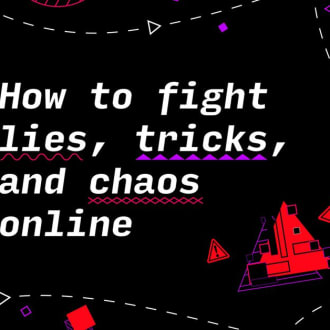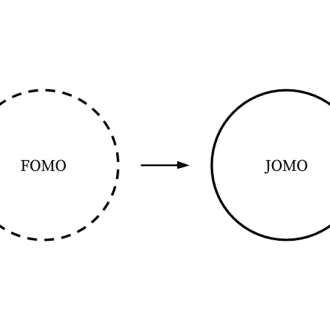
10+ Best Articles on Attention Economy
The most useful articles and videos on attention economy from around the web, curated by thought leaders and our community.
Refind focuses on timeless pieces and updates the list whenever new, must-read articles or videos are discovered.
Top 5 Attention Economy Articles
At a glance: these are the articles that have been most read, shared, and saved on attention economy by Refind users in 2024 so far.
Videos
Watch a video to get a quick overview.
Understanding the psychology of distraction can help you stay on task
New videos DAILY: https://bigth.ink Join Big Think Edge for exclusive video lessons from top thinkers and doers: https://bigth.ink/Edge ---------------------...
Tristan Harris: How a handful of tech companies control billions of minds every day
A handful of people working at a handful of tech companies steer the thoughts of billions of people every day, says design thinker Tristan Harris. From Facebook notifications to Snapstreaks to YouTube…
Joseph Gordon-Levitt: How craving attention makes you less creative
Joseph Gordon-Levitt has gotten more than his fair share of attention from his acting career. But as social media exploded over the past decade, he got addicted like the rest of us -- trying to gain…
Eli Pariser: Beware online "filter bubbles"
As web companies strive to tailor their services (including news and search results) to our personal tastes, there's a dangerous unintended consequence: We get trapped in a "filter bubble" and don't get exposed to information that could challenge or broaden our worldview. Eli Pariser argues powerfully that this will ultimately prove to be bad for us and bad for democracy.
What is ...?
New to #attention economy? These articles make an excellent introduction.
What is Technology Doing to Us?
In this episode of the Waking Up podcast, Sam Harris speaks with Tristan Harris about the arms race for human attention, the ethics of persuasion, the consequences of having an ad-based economy, the dynamics of regret, and other topics.
How to ...?
How to beat distractions and reclaim your focus
You know the drill: you get your beverage of choice, clear your desk of clutter, pop in your headphones, and sit down to work, only to be met with a buzzing phone, an email notification, or a knock on…
How to fight lies, tricks, and chaos online
A guide to slowing down and reading up on internet news
Short Articles
Short on time? Check out these useful short articles on attention economy—all under 10 minutes.
Stanford psychology expert: This is the No. 1 work skill of the future—but most fail to realize…
The skill you most need at work is one that also helps you at home, says psychology expert and best-selling author Nir Eyal.
«In 1971, the psychologist Herbert A. Simon emphasized that a wealth of information means a dearth of something else: attention.»
From FOMO to JOMO: the joy of missing out
JOMO—the joy of missing out—is a way to live an intentional life. It’s realising that FOMO is distracting you from your life’s purpose.
«Associated with a fear of regret, FOMO is the apprehension that others might be having rewarding experiences from which you are absent.»
Want to be less distracted? Try this: Find the fun in tedious tasks
Most of us blame our phones as the reason we can’t get anything done. But the real culprit often isn’t those shiny devices, which means we can stay focused simply by switching our perspective…
One year in, Facebook’s big algorithm change has spurred an angry, Fox News-dominated — and very engaged!…
This is not "time well spent."
Consume less, create more
Modern technology makes us consumers instead of creators Like most people, I like to sit on the bus, stare out at the zombies drooling over their phones, and feel smugly superior. I see their bored,…
Long Articles
These are some of the most-read long-form articles on attention economy.
Infinite scroll: life under Instagram
The long read: After a few years, I came to understand Instagram dwellers as broken people – my people
A Radical Guide to Spending Less Time on Your Phone
When I used these strategies, I finally took back my life
The Danger of Thinking We’re All ‘Addicted’ to Tech
Opinion: Telling ourselves that tech 'hijacks' our brains plays right into tech's hands.
Being ‘Indistractable’ Will Be the Skill of the Future
How the difference between traction and distraction could transform your productivity
The machine always wins: what drives our addiction to social media
The long read: Social media was supposed to liberate us, but for many people it has proved addictive, punishing and toxic. What keeps us hooked?
What is Refind?
Every day Refind picks the most relevant links from around the web for you. Picking only a handful of links means focusing on what’s relevant and useful.
How does Refind curate?
It’s a mix of human and algorithmic curation, following a number of steps:
- We monitor 10k+ sources and 1k+ thought leaders on hundreds of topics—publications, blogs, news sites, newsletters, Substack, Medium, Twitter, etc.
- In addition, our users save links from around the web using our Save buttons and our extensions.
- Our algorithm processes 100k+ new links every day and uses external signals to find the most relevant ones, focusing on timeless pieces.
- Our community of active users gets the most relevant links every day, tailored to their interests. They provide feedback via implicit and explicit signals: open, read, listen, share, mark as read, read later, «More/less like this», etc.
- Our algorithm uses these internal signals to refine the selection.
- In addition, we have expert curators who manually curate niche topics.
The result: lists of the best and most useful articles on hundreds of topics.
How does Refind detect «timeless» pieces?
We focus on pieces with long shelf-lives—not news. We determine «timelessness» via a number of metrics, for example, the consumption pattern of links over time.
How many sources does Refind monitor?
We monitor 10k+ content sources on hundreds of topics—publications, blogs, news sites, newsletters, Substack, Medium, Twitter, etc.
Can I submit a link?
Indirectly, by using Refind and saving links from outside (e.g., via our extensions).
How can I report a problem?
When you’re logged-in, you can flag any link via the «More» (...) menu. You can also report problems via email to hello@refind.com
Who uses Refind?
450k+ smart people start their day with Refind. To learn something new. To get inspired. To move forward. Our apps have a 4.9/5 rating.
Is Refind free?
Yes, it’s free!
How can I sign up?
Head over to our homepage and sign up by email or with your Twitter or Google account.
Keep Learning
Get the big picture on your favorite topics.














